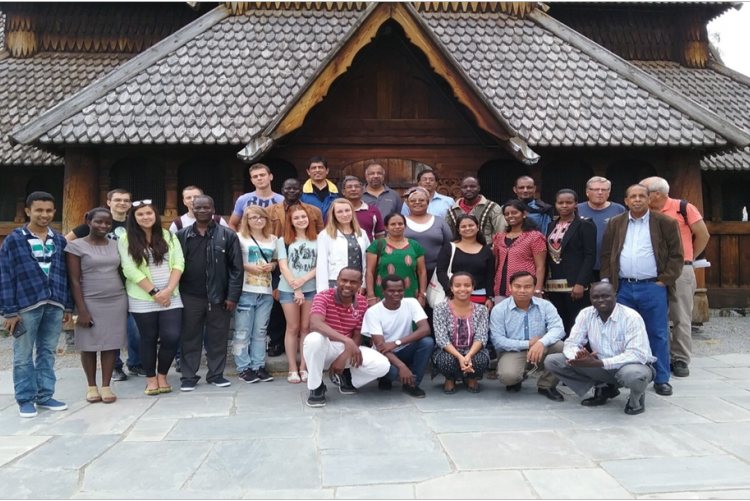Introduction to the BA Program
Conflict and peace studies are a rapidly growing field that includes areas as diverse as international relations, ethnic and religious conflict and interpersonal communication. At the heart of many of the different subtopics is the concern with conflict resolution and prevention. The Bachelor of Arts in Conflict and Peace Degree is thus designed to help students explore why conflict and violence occur and learn how conflict can be managed and transformed to accomplish constructive ends.
Equally significant is the fact that peace studies are an essential skill in every day life to achieve peaceful co-existence economically, socially, politically and spiritually. Peace making is a skill, like literacy, which we must begin to learn now. This programme is an endeavour to provide that literacy.
The management of conflict and development of collaborative relations requires an appreciation of human diversity and understanding issues related to environmental sustainability and equitable distribution of resources and power across community boundaries. Students are encouraged to explore different cultures and consider race, ethnicity, gender and class structure in relation to conflict.
The programme takes an interdisciplinary perspective to the study of conflict and peace. In keeping with our core objective of having an impact on society at large, the programme will endeavour to integrate personal, professional and political aspects of life through a commitment to positive relations with others and the environment, and a thoughtful exploration of values.
Students who pursue this programme will be able
• To be the change they want to see in the world.
• To answer the questions: Why war? Why peace?
• To lead a life dedicated to social justice and non-violence.
Objectives
- Prepare students to contribute to the creation of justice, equitable, and peaceful conditionsin the world through understanding the complex dynamics of conflict and peace at interpersonal, organisational, societal, and global levels of human interaction.
- Provide students with analytical skills and expression competencies for pursuing careers in human rights, conflict resolution, peace-related endeavours, and more generally in responsible undertakings in a wide range of professional settings, e.g. teaching, research and formulation of fundamental policies on conflict and peace.
- Provide an appropriate background for students interested in advanced study in peace and conflict or related fields.
- To enable students to become professionals in teaching, research and formulation of policies in areas of conflict and peace.
- To enable students to acquire in-depth knowledge of the multifaceted nature of conflict and peace.
Rationale
Generalizations about conflict and warfare claim that conflict is inevitable in human organizations. Yet there is a dearth of scholarly attempts to understand the nature, causes, course and the varied impacts of conflict, or of ways to bring about peace in the context of an internationally accepted legal regime.
The changing nature of warfare from traditional to modern with the growing sophistication of weapons and their capacity to destroy calls for a thorough examination of warfare and its technologies through time. In the recent past, warfare has expanded its scope and the involvement of civilians has become more and more commonplace than hitherto. Alongside war the quest for peace has been with humans throughout their history. An understanding of conflict and its resolution it is hoped will form a basis for the creation of a culture of peace among peoples from various backgrounds, with the ultimate goal of attainment of global peace.

